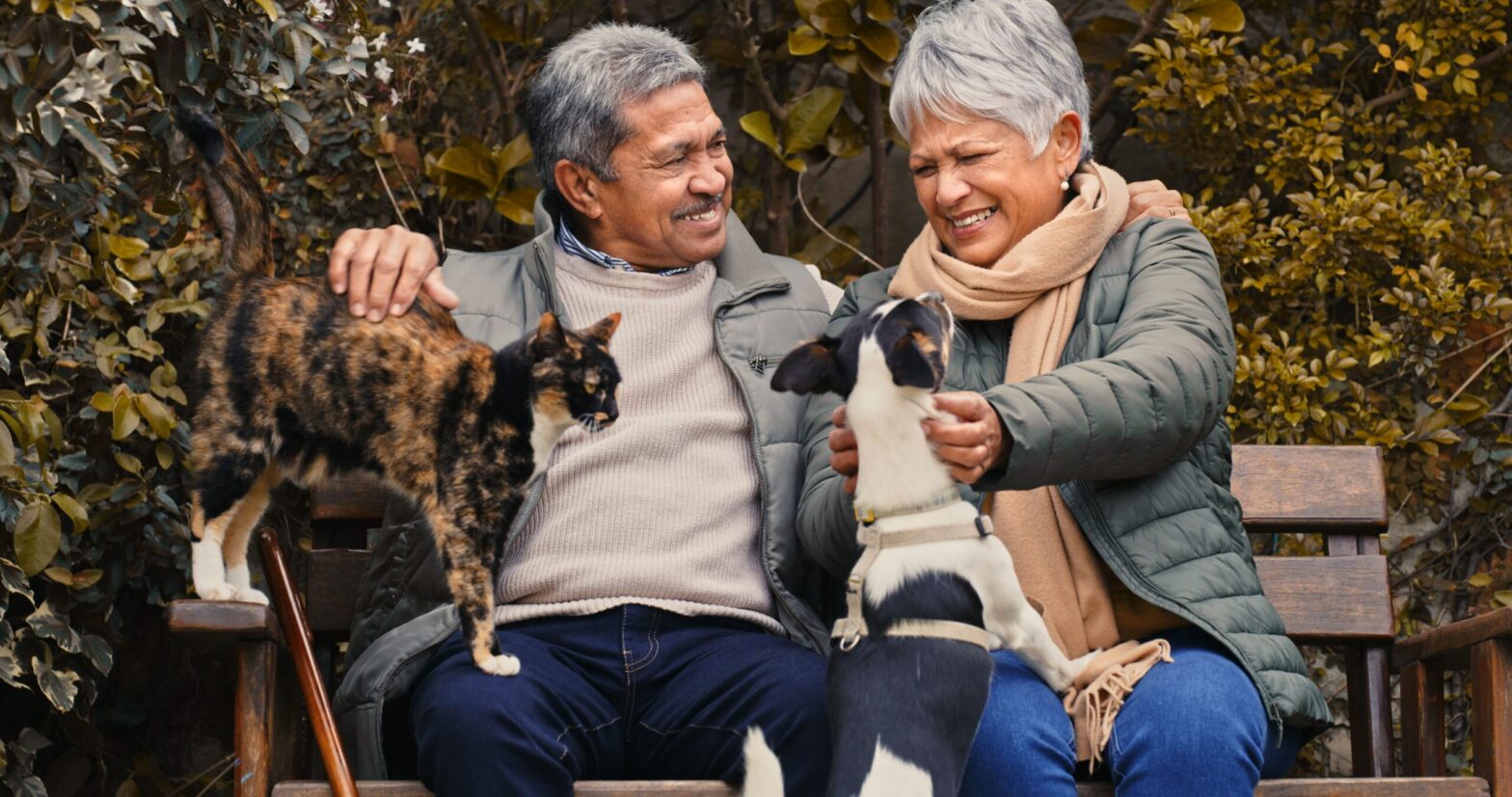On the surface, your pet’s needs seem relatively simple—reliable food, water, shelter, veterinary care, and the occasional pat on the head are enough to sustain them and earn an approving tail wag.
But, as a devoted pet owner, you want more for your beloved companion than the bare minimum. You want your pet to thrive and enjoy a long, rich life filled with love, health, and happiness.
While some call this “spoiling,” the devoted pet lovers at UrgentVet consider this the standard of care. After all, an exceptional life is how we can best repay our pets for their unconditional love.
Apart from the basics, what do pets really want from their paw-rents? Here’s a “ruff” idea.
#1: Your pet wants to feel safe
Some dogs and cats may act tough, but deep down most pets instinctively know they are simultaneously predator and prey. Pets who feel vulnerable to real or imagined threats can suffer significant mental and physical health problems that impair their quality of life. Ways to help your pet feel safe and sound include:
- Quiet places to rest — Sleeping is a vulnerable state. Help your pet feel secure with a quiet, protected indoor space such as a covered crate, cozy bed, or hiding box. Of course, you can always share your bed, too.
- Ample resources — Ensure your pet has easy access (e.g., convenient location, more than one location, a location where other pets cannot bully them) to important resources, including food, water, litter box or outdoors, and toys.
- Early socialization — Socialization helps pets develop confidence and self-assurance in unfamiliar situations and should start when they are young – once fully vaccinated.
- Positive reinforcement — Treat your pet with kindness and reward good behavior. Avoid punishment and harsh corrections, which only create stress, fear, and insecurity.
#2: Your pet wants your attention
Dogs, cats, and many other popular pet species are social creatures that crave companionship and positive interactions. Social relationships help pets feel safe, comfortable, and loved. Satisfying this need is relatively easy—simply include your pet in your daily activities and provide frequent one-on-one attention and acknowledgement through physical contact, verbal praise, exercise, and regular grooming. In short, your pet should be part of the family.
#3: Your pet wants a consistent routine
Pets—like most people—feel better when they know what to expect at a given time on any given day. And, pets may not have to decide what to wear or what to pack for lunch, but a predictable routine helps them anticipate when and where their basic needs (e.g., food, water, elimination opportunities, attention) will be met. This decreases potential resource-related anxiety and helps pets practice healthy and restorative behaviors such as rest, exploring their environment, and playing.
#4: Your pet wants to play!
Play is more than recreational for pets—play provides mental and physical exercise, boosts confidence, stimulates endorphin release (i.e., the feel-good hormones), reduces stress, and strengthens the human-animal bond.
If your pet isn’t interested in fetching a ball or chasing a feather wand, don’t worry—they may be motivated by other toys (e.g., ropes, discs, motion-activated or plush toys), more or less physical play, or treat-based games. Experiment with different toys and activities to learn what excites your pet. Your pet’s preferences can also change as they age. Remember that there’s no wrong way to play!
#5: Your pet wants to express their natural instincts
Even the most purrfect pet has some natural instincts. Whether your cat or dog has traits that have been carefully crafted through selective breeding (e.g., herding, hunting, guarding) or is strictly survival-based (e.g., predatory behavior in cats), they will find safe, healthy outlets for instinctive behavior deeply satisfying. Allow the opportunity for:
Chewing
Running
Rolling
“Burying” toys
Cat trees, perches, and motion-activated toys (we recommend keeping all cats indoors)
#6: Your pet wants to be comfortable and pain-free
Every living being deserves a pain-free life. Give your pet the gift of health, wellness, and mobility by feeding them a high-quality diet, providing daily exercise, keeping them at a healthy weight, and staying up-to-date on routine veterinary care. If your pet is arthritic or experiencing chronic pain, daily medication and at-home modifications, such as pet ramps, an orthopedic bed, and non-slip rugs, can preserve their mobility and independence.
#7: Your pet wants a challenge
Old dogs—and cats—aren’t the only ones who can learn new tricks. Young, adult, and senior pets enjoy mental challenges such as puzzle toys, enrichment feeders, training (e.g., obedience, trick training), and exploring new environments. Regular mental engagement increases your pet’s focus, improves behavior, and reduces anxiety-associated disorders.
Every pet also needs a knowledgeable veterinary care team who meets—and exceeds—their needs. But, sometimes your primary veterinarian is busy or your pet needs prompt non-life-threatening, after-hours care. Then, trust UrgentVet. Our convenient locations provide powerful peace of mind when your pet is sick or injured. Walk in or save your spot online, because your pet can’t wait to feel better.






